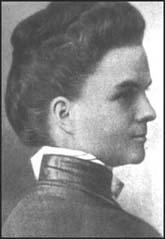|
Getting your Trinity Audio player ready...
|
Adella Hunt Logan was an African-American writer, educator, and suffragist who helped to advocate for the suffragist movement.
19th Amendment
This year marked the centennial of the Women’s Suffragette movement with the ratification of the 19th amendment that prohibited both state and federal government from denying the right to vote based on an individual’s sex. Names such as Susan B. Anthony and Elizabeth Cady Stanton are often celebrated as many reflect on the indelible contributions these women made to women’s rights. However, there is little mention of the valuable and costly contributions of their black female counterparts.
Black Women’s Suffrage
Black women’s suffrage was a movement all on its own due to much of the anti-black sentiments from the broader suffragist movement led by white women. Like many civil rights, the right to vote didn’t occur overnight, and it was even longer before Black women would be allowed to fully participate in one of this country’s greatest democratic processes, 1965 to be exact. Despite the contributions of many Black women to the movement, they were faced with a difficult plight. Riddled with the intersectionality of being both female and black, Black women found it difficult to move their agenda forward and get their voices heard.Â

Birmingham Equal Suffrage Association of
Alabama Department of Archives and History
Being the first to do anything comes with its share of accolades and admiration but it also comes with an equal amount of cuts and bruises. Deep cuts and bruises were sustained over a century ago. These historical blemishes were taken on relentlessly by women who came before us and blazed a trail that would one day see a path for a woman of color to be elected to the second-highest office in the country. One woman who embodied the essence of Black woman suffrage was Adella Hunt Logan.
Who was Adella Hunt Logan?
Hunt Logan was an African-American writer, educator, and suffragist who helped to advocate for the suffragist movement. Born in 1863, right before the emancipation of the slaves, Hunt Logan was the fourth of eight children. She was of mixed race with her mother being a free woman of color, and her father a white plantation owner.Â
Privileged with having light skin due to her mixed-race, Adella Hunt Logan was first afforded the opportunity to obtain an education that led to her obtaining her certification as a teacher at just 16 years of age. Next, she went on to attend Atlanta University’s Upper Normal College and obtain a master’s degree. Shortly thereafter, in 1883, Hunt Logan was offered another rare opportunity to join the faculty at Tuskegee University by Booker T. Washington himself. During her tenure at the Institute, she became the school’s only librarian. It was here that she met her spouse, Warren Logan, the Institute’s treasurer. They married in 1888 and had nine children of which six survived to adulthood.
Tuskegee Institute allowed Adella to dig in her heels and get more involved in activism, specifically the women’s suffrage movement. She headed the National Association of Colored Women Clubs (NACWC), led many discussions on suffrage, and organized a library full of reading material on the movement. In 1901 she was inspired by a speech given by women’s suffrage activist, Susan B. Anthony. Despite the racist rhetoric and the National American Woman Suffrage Association’s (NAWSA) endorsement of Jim Crow laws, Hunt Logan joined the organization becoming Alabama’s first and only lifetime member of the organization. As a member of the NAWSA, she was able to attend mostly segregated conferences and political events in which she obtained materials, resources, and strategies that she brought back to share with her community.
Hunt Logan lectured all over the country and wrote several articles on the topic of suffrage. She quickly rose through the ranks as an advocate for universal suffrage. Due to several setbacks that splintered the movement along with personal health and marital issues, Hunt Logan fell into a depression and was committed to Michigan’s Battle Creek Sanitarium where she was given electroshock treatment after having a breakdown that led to her burning down her husband’s office. To add misery to heartache, her close friend, Booker T. Washington died shortly after her admission to the sanitarium which only worsened her depression. She returned to Alabama to attend his memorial service and was met with continued rumours and allegations of her husband’s infidelity. Hopeless and depressed, Hunt Logan tragically committed suicide by jumping to her death from the fifth floor of a campus building in front of hundreds of onlookers. She never realized the efforts of her hard work. One could argue that Hunt Logan succumbed to the core tenets of the very movement she was advocating for. Perhaps the stress of balancing activism, motherhood, spousal duties, and work were simply too much. All of this while being black in a country that refused to recognize her because of her sex and hated her because of race.
“The colored American believes in equal justice to all, regardless of race, color, creed or sex, and longs for the day when the United States shall indeed have a government of the people, for the people and by the people—even including the colored people.†-Adella Hunt Logan
Works Cited:
Re:19th Amendment – https://www.archives.gov/exhibits/featured-documents/amendment-19
Re: Black women’s ability to vote – https://tellersuntold.com/2020/08/31/the-19th-amendment-didnt-allow-all-black-women-the-right-to-vote/
Re: Mixed race – https://www.mixedracestudies.org/?tag=adella-hunt-logan
Re: National Association of Colored Women’s Club – https://www.nacwc.com/
Re: National American Woman Suffrage Association – https://www.britannica.com/topic/National-American-Woman-Suffrage-Association
Re: Jim Crow – https://www.ferris.edu/jimcrow/what.htm
Re: Michigan’s Battle Creek Sanitarium – https://www.pbs.org/newshour/health/dr-kelloggs-world-renowned-health-spa-made-wellness-titan


